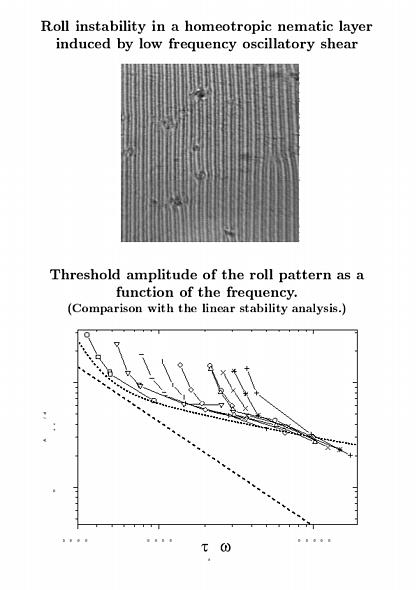
The response of a homeotropically aligned nematic liquid
crystal layer to oscillatory rectilinear shear (Couette flow) was investigated
for frequencies f between 0.01 and 200 Hz, and layer thickness d between
10 and 130 um. Below the onset of instability the cell was laced between
crossed polars and light transmission was studied using a parallel light
beam. The experimental results for the transmitted light intensity agree
quantitatively with numerical solutions of the nematodynamic equations
for different cell thicknesses, oscillation frequencies, and amplitudes.
For frequencies between 25 and 150 Hz the critical oscillation amplitude
for the onset of a spatial pattern, observed in polarized white light,
could be reached.The pattern consisted of stationary rolls perpendicular
to the direction of the oscillation.The experimentally obtained frequency
dependence of the critical shear amplitude for the roll instability for
different cell thicknesses is compared with an existing theory and the
results of numericalcalculations.
